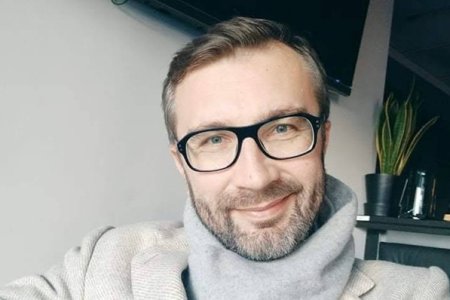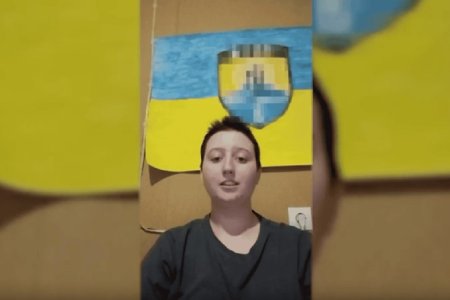
Leniye Umerova, the young Crimean Tatar whom Russia seized when she tried to return to occupied Crimea to be with her gravely ill father, is safely home in Ukraine after almost two years in Russian captivity. She is one of 14 recognized Ukrainian political prisoners released as part of two exchanges of prisoners on 13 and 14 September. Two other women, held prisoner in occupied Donbas since 2017 for their pro-Ukrainian position, have also been freed. Given the silence in Russian propaganda media, it is quite possible that they, and 138 other Ukrainian prisoners of war were exchanged for the Russian conscripts whose forced engagement in its war Russia has been denying since the beginning of its full-scale invasion.
There is huge joy for all of those who have returned home, including the many prisoners of war subjected to savage torture. The joy is, however, tinged with sadness as so very many others remain in Russian captivity, including many whom Russia has sentenced to up to life imprisonment on grotesque and totally fabricated charges.
Leniye Umerova is now 26 and had been held in Russian prisons since she was seized on 4 December 2022 as she tried to cross into Russia on her way to be with her father who had been diagnosed with cancer. Russia initially came up with five preposterous administrative charges as pretext for holding her prisoner, before its FSB took over and imprisoned her in Moscow on absurd ‘spying’ charges.
While she may have originally been detained by zealous officials at the border wanting to prove their ‘vigilance’, Leniye’s family believe that she was targeted in reprisal for the fact that the young woman had left occupied Crimea and refused to take Russian citizenship (more details here)
Olena Fedoruk is one of at least two civilian hostages from Kalmiuske (formerly Komsomolske), a city 50 kilometres south of Donetsk and Ilovaisk and just over 30 kilometres from the border with Russia. She and Valery Matiushenko (released in an exchange on 24 August 2024) were clearly seized in 2017 for their pro-Ukrainian position. Both could testify to how much of the shelling experienced in 2014 came from the Russian Federation and that after the battle near Ilovaisk (at the end of August 2014), the Russian military appeared in the city, bringing their own technology.
Marina Yurchak, an environmental chemist, had refused to leave Donetsk after it was seized by Russian and Russian-led militants in 2014 and was very active on Twitter, writing about what she witnessed in the occupied city. She openly wrote, for example, about where the shelling was coming from and the direction in which military technology was being transported.
She was seized on 9 November 2017 by the so-called ‘DPR ministry of state security’ and held and, undoubtedly, torture at the notorious ‘Izolyatsia’ prison in Donetsk. While she was later officially ‘sentenced’ to 15 years for ‘spying’, she had also been accused of ‘insulting’ top militants, whose vehicles she refers to as ‘orc-mobiles’.

There remain a huge number of civilian hostages in occupied Donbas, as well as some whom Russia appears to have again tortured and put on ‘trial’ before Russian courts. See for example, information about Hryhory Sinchenko, Oleksandr Korol; Oleksandr Pohorielov, Vasyl Churylov, Artem Yena and Oleksandr Tymoshenko; Andriy Harrius and very many others,
The other women political prisoners released on 13 September had either been illegally convicted of, or were facing huge sentences for serving in either the Aidar Battalion or the Azov Regiment. Russia has, without any grounds, declared these two parts of Ukraine’s Armed Forces ‘terrorist’ organizations, and is violating international law by ‘trying’ Ukrainians under Russia’s flawed ‘terrorism’ legislation. All were recognized by the Memorial Support for Political Prisoners Project as political prisoners.
Natalia Prydatchenko and Viktoria Tkachenko had been sentenced to five years for having served in Ukraine’s Aidar Battalion. Both had been imprisoned since 2022. Fellow Ukrainians Volodymyr Linnyk and Volodymyr Udovyka were sentenced on the same absurd charges to 6 and 5 years, respectively.
Marina Mishchenko and Lilia Prutian are medics who were serving in the Aidar Battalion when seized by the invaders in March – April 2022. They were facing ‘trial’ on the same charges, together with 16 other Ukrainians.
Olena Avramova; Nina Bondarenko; Alyona Bondarchuk; Natalia Holdfiner; Vladyslava Maiboroda; Iryna Mohytych; Lilia Pavrianidis; Lilia Rudenko and Marina Tekin. These nine women were cooks serving in Ukraine’s Azov Regiment who have been imprisoned since 2022.
They were among the 23 prisoners of war (and recognized political prisoners) against whom, on 21 August 2024, a Russian prosecutor demanded huge sentences in flagrant violation of the Geneva Convention. There would have been 24 POWs, except that one Azov defender, 55-year-old Oleksandr Ishchenko died in a Russian SIZO on 22 July, almost certainly of injuries sustained under torture.
The ’trial’ of these Ukrainian men and women, who have protected status under international law began in June 2023 at the notorious Southern District Military Court in Rostov. The violation of international law through ‘terrorism’ charges against prisoners of war and the fact that most of the defendants seemed dangerously emaciated prompted international media coverage.
Russia is, however, churning out ‘sentences’ against Ukrainian prisoners of war, in particular, those from Azov or Ukraine’s Marines who defended Mariupol in 2022. These, unfortunately, receive less publicity despite the lawless charges and sentences of up to life imprisonment. Former prisoners and international monitors have reported that virtually all Ukrainian prisoners of war are subjected to torture. Less is known about the large number of civilians whom the Russians abducted and are holding prisoner, but there are no grounds for optimism about the treatment that they are receiving.
Even before its full-scale invasion of Ukraine, Russia was holding a large, and ever-mounting number of Crimean Tatar and other Ukrainian political prisoners, with very many also subjected to torture in order to extract fake ‘confessions’.



